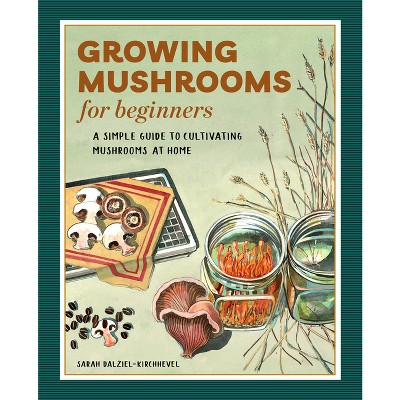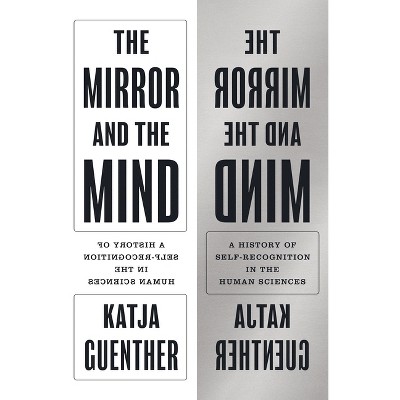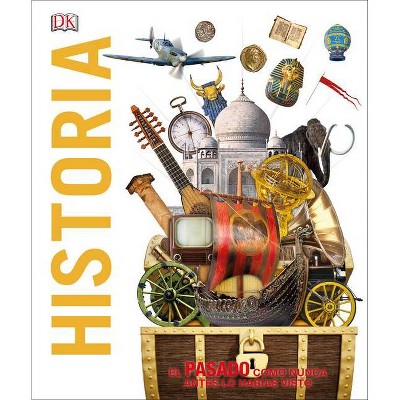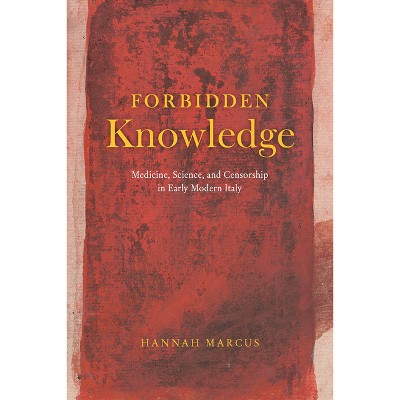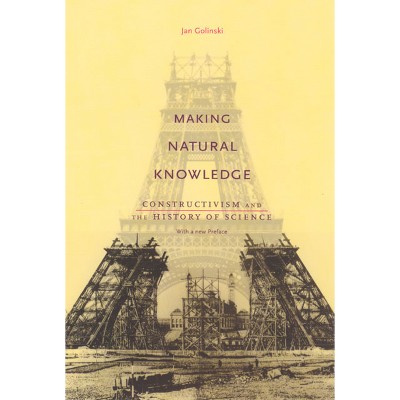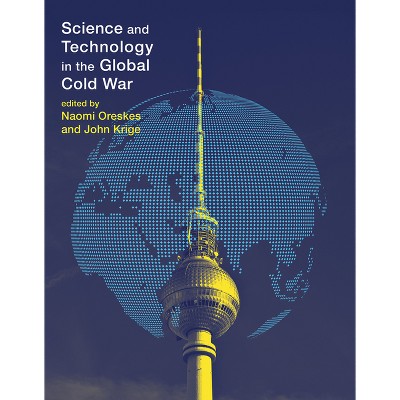Sponsored

Knowledge Flows in a Global Age - by John Krige (Hardcover)
$135.00
In Stock
Eligible for registries and wish lists
Sponsored
About this item
Highlights
- A transnational approach to understanding and analyzing knowledge circulation.
- About the Author: John Krige is the Kranzberg Professor Emeritus in the School of History and Sociology at the Georgia Institute of Technology.
- 368 Pages
- Science, History
Description
About the Book
"Viewing knowledge as travelling between sites, rather than flowing like currents through them or diffusing out from them, the contributors to this collection stress the human intention which shapes and drives how knowledge is processed, mobilized, and repurposed to serve differing and uneven interests, constraints, and environments. The chapters consider both what knowledge travels and how it travels across borders of varying permeability. They home in on a vast range of platforms and objects of knowledge, from tangible commodities--like hybrid wheat seeds, penicillin, Robusta coffee, naval weaponry, and high performance computers--to the more conceptual apparatuses of telecommunications, statistics, and food sovereignty. Moreover, this volume decenters the Global North in its focus, tracking how knowledge travels in all directions across the borders of Mexico, India, Portugal, Guinea-Bissau, the Soviet Union, China, Angola, and Palestine and the West Bank, as well as the US and the UK. The variety of kinds of knowledge that are addressed in the chapters brings forth an extraordinary array of state and non-state actors and institutions committed to performing the work needed to move knowledge across national borders"--Book Synopsis
A transnational approach to understanding and analyzing knowledge circulation. The contributors to this collection focus on what happens to knowledge and know-how at national borders. Rather than treating it as flowing like currents across them, or diffusing out from center to periphery, they stress the human intervention that shapes how knowledge is processed, mobilized, and repurposed in transnational transactions to serve diverse interests, constraints, and environments. The chapters consider both what knowledge travels and how it travels across borders of varying permeability that impede or facilitate its movement. They look closely at a variety of platforms and objects of knowledge, from tangible commodities--like hybrid wheat seeds, penicillin, Robusta coffee, naval weaponry, seed banks, satellites and high-performance computers--to the more conceptual apparatuses of plant phenotype data and statistics. Moreover, this volume decenters the Global North, tracking how knowledge moves along multiple paths across the borders of Mexico, India, Portugal, Guinea-Bissau, the Soviet Union, China, Angola, Palestine and the West Bank, as well as the United States and the United Kingdom. An important new work of transnational history, this collection recasts the way we understand and analyze knowledge circulation.Review Quotes
"The volume shows clearly that the very idea of 'progress' is wrought with tension, where some actors are constricted by the liberal contractual framework and are expected to generate profits, while others seek to establish asymmetric relations in the contest for the military and technoscientific superiority. Knowledge Flows in a Global Age reads as a compendium of the complexities of transnational knowledge transfer questioning the notion of effortless globalization. It does important work that will certainly be useful for a wide range of scholarship."-- "H-Diplo"
"Over the past decade, Krige has positioned himself as one of the foremost scholars investigating the seemingly simple yet, in truth, incredibly intricate and complicated issue of how and why knowledge moves around. Whereas his previous work focused on the power, utility and impact of scientific networks during the twentieth century, particularly in the nuclear field, Krige has now moved into the even broader field of knowledge mobility itself. . . . Similar to its predecessor, [Knowledge Flows in a Global Age] once again challenges us to rethink our taken-for-granted assumptions of how and why knowledge moves around, and what factors prevent it from doing so (or, more directly, what factors may deny the designation of knowledge in the first place). It is, for this reason, a richly stimulating collection the significance of which, true to its transnational outlook, transgresses standard disciplinary assumptions, disrupts interpretive frameworks and asks us to reconsider our own roles as academics in these processes."-- "Annals of Science"
"An excellent, absorbing, and refreshingly revisionist collection of cutting-edge studies by eminent scholars in the transnational history of modern science and technology, organized and edited by a pioneer in the field. Integrating enlightening empirical examinations with penetrating analyses, the volume illuminates brilliantly forces that both propelled and blocked knowledge flow across national borders."--Zuoyue Wang, California State Polytechnic University
"For too long, 'global' histories of science have envisioned an antiquated hydraulic mechanism, pumping out authorized knowledge from northern laboratories to southern deserts. At last, this book reveals instead the densely and intricately reticulated worldwide networks transmitting the concepts and practices of modern science. Abandoning the imperial optic for such multi-sited transnational perspectives makes global science look truly different and far more compelling."--Warwick Anderson, University of Sydney
"Krige and his collaborators have assembled a powerful array of studies that reconfigure conventional narratives about how knowledge flows. Divided among historical case studies related in some way or another to national and economic security, on the one hand, and agricultural exchanges, on the other, the volume avoids the usual binaries of Global North and Global South--or of guns and butter--emphasizing the efforts to block, shape, or redirect the flow of knowledge. The cast of characters and the variety of regions is massively expanded, to excellent effect."--Michael D. Gordin, Princeton University
About the Author
John Krige is the Kranzberg Professor Emeritus in the School of History and Sociology at the Georgia Institute of Technology. He is the coauthor, most recently, of Knowledge Regulation and National Security in Postwar America, also published by the University of Chicago Press.Dimensions (Overall): 9.0 Inches (H) x 6.0 Inches (W) x .94 Inches (D)
Weight: 1.56 Pounds
Suggested Age: 22 Years and Up
Number of Pages: 368
Genre: Science
Sub-Genre: History
Publisher: University of Chicago Press
Format: Hardcover
Author: John Krige
Language: English
Street Date: September 7, 2022
TCIN: 1006098537
UPC: 9780226819945
Item Number (DPCI): 247-44-7137
Origin: Made in the USA or Imported
If the item details aren’t accurate or complete, we want to know about it.
Shipping details
Estimated ship dimensions: 0.94 inches length x 6 inches width x 9 inches height
Estimated ship weight: 1.56 pounds
We regret that this item cannot be shipped to PO Boxes.
This item cannot be shipped to the following locations: American Samoa (see also separate entry under AS), Guam (see also separate entry under GU), Northern Mariana Islands, Puerto Rico (see also separate entry under PR), United States Minor Outlying Islands, Virgin Islands, U.S., APO/FPO
Return details
This item can be returned to any Target store or Target.com.
This item must be returned within 90 days of the date it was purchased in store, shipped, delivered by a Shipt shopper, or made ready for pickup.
See the return policy for complete information.
Frequently bought together
Trending Non-Fiction


$18.28
was $19.58 New lower price
4.7 out of 5 stars with 17 ratings




